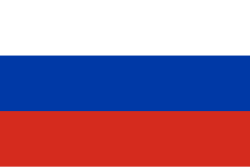Contest history
Russia debuted in the 1994 contest after becoming a member of the EBU. Russia won their first and so far only contest in 2008, when Dima Bilan, participating for the second time in the contest, won with the song "Believe", bringing the contest to Russia for 2009. Russia came second at four contests; in 2000 with the song "Solo" performed by Alsou, in 2006 with Dima Bilan's song "Never Let You Go", in 2012 with the song "Party for Everybody" performed by Buranovskiye Babushki, and in 2015 with Polina Gagarina's song "A Million Voices". They also achieved four third-place finishes; in 2003 with t.A.T.u's song "Ne ver', ne boysia", Serebro in 2007 with their entry "Song #1", and in 2016 as well as 2019 with Sergey Lazarev's entries "You Are the Only One" and "Scream" respectively.
Russia has failed to qualify for the final on two occasions. In 1996, Russia's entry was Andrey Kosinsky with the song "Ya eto ya", but he scored an insufficient number of points in a special qualifying round, while in 2018 Yulia Samoylova, who represented the country with the song "I Won't Break", failed to qualify from the televised second semi-final.
In 1998, because Russia did not participate in the contest (due to lower average scores in participating in previous competitions), Russia refused to broadcast the competition and the European Broadcasting Union in return forbade the country to participate the following year. According to unconfirmed information, Russia intended to send Tatyana Ovsienko with the song "Solntse moyo" (My Sun), which turned out to be a false rumour as the song was officially released in mid-1997 on Tatyana's album "Za Rozovym morem". Tatyana herself, during an interview, said that she did not go to Eurovision because she was "Either afraid or not very sure, besides, I knew that there were stronger guys and girls, and I thought that I would still have time [to go to Eurovision]." [3]
Russia was the most successful country in Eurovision between 2000 and 2009, with one win, two-second places, and two third places. However, in 2010 they finished 11th, and in 2011 they were 16th, which was the worst placing for Russia since 1995. Interest in the competition fell, but in 2012, Buranovskiye Babushki finished in second place, increasing Russia's interest in the show. Sergey Lazarev holds the record of the highest score of any Russian contestant, who finished third in 2016 with 491 points.
In February 2019, Sergey Lazarev was once again confirmed as the Russian representative for the 2019 contest, becoming the second returning artist in Russia's Eurovision history after Dima Bilan, who participated in 2006 and 2008 respectively. This time he represented his country with the song "Scream", with which he brought Russia back to the final for the first time since 2016 and achieved the country's 10th top 5 result, by finishing third once again.
For the 2021 contest, Russia opted to return to a national selection, after Little Big declined to return following their intended participation in the later-cancelled 2020 contest with "Uno". "Russian Woman" performed by Manizha emerged as the winner of the selection, which then went on to finish in 9th place in the final.
Russia had originally planned to participate in the 2022 contest, but was excluded from participating by the EBU due to the Russian invasion of Ukraine. [4] [5] In response, the Russian broadcasters VGTRK and Channel One announced their intention to suspend their membership in the EBU. [1] The suspension was made effective by the EBU on 26 May, preventing Russia from participating in further Eurovision events unless its membership is resumed. [2]













